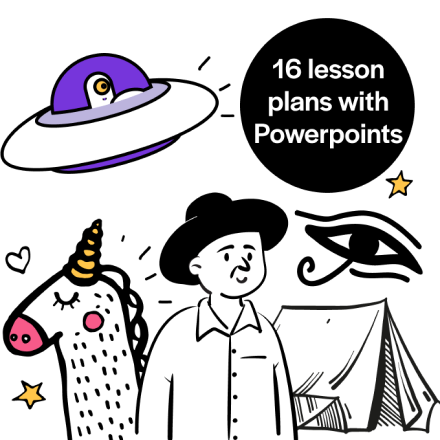Covid and schools – does online tutoring help kids catch up?

Adele Key explains how digital sessions have supported pupils’ improvements in English and maths

- by Adele Key

Like every primary school across the nation, we were very much aware of the impact that lockdown had on our children, before the second bout even began.
Of our 210 pupils on roll, 21 per cent are eligible for pupil premium funding, with about 16 per cent classified as having special educational needs, and missing lessons and adapting to new routines had been tricky for many.
We were already doing our own catch-up tuition with our Year 6 children after school in pre-pandemic times, but I didn’t feel that we could continue a home-grown approach during Covid, as we were all exhausted from the imposed restrictions.
So, I recommended to my headteacher that we should buy in online tuition, rather than using our own staff and adding to their workload.
We managed to find some funding from our budget, later subsidised through our recovery premium, and started a trial of online tuition with 12 Y6s; six focusing on English and six on maths.
We chose these children based on our end of autumn term NFER data; they were all still working at the very beginning of Y6 expectations and we felt that these pupils needed a boost in their confidence that would help them with attainment as well.
We could tell that this first spell of live online tuition worked well simply because we could see the links the children were making between their sessions and what they were doing in class, so we expanded it to include additional tutoring for Y5 once the children were back in school in March.
How does it work?
We buy online tuition in blocks of one-hour sessions involving one tutor with small groups of two or three children (we use Pearson, but there are multiple providers out there).
Once we’ve specified the subject and topics that we want to cover, we choose the tutors and then send them a short biography of each child they will be working with.
The information includes where they are in their age-related expectations and the key areas in which they need help. At first our children had weekly sessions, but we soon moved to twice weekly as we feel it is much more beneficial, so we’ve done that for all pupils this term, too.
We’ve worked hard to marry up the tuition sessions with the concepts that we’re teaching in class as much as we can. In Maths, the Year 5 teacher chose number units for tuition sessions to support arithmetic and improve speed and accuracy.
In Year 6, I chose fractions as I know this is an area of weakness and it crops up a lot in SATs. It was a little more straightforward for English as we chose reading skills, which are transferrable across all aspects of the curriculum.
It is vital that we have a feedback loop, too. Most of the time we will see the children ‘getting’ concepts that challenged them before, but we also get feedback directly from tutors.
At the end of a session, the tutor will rate each child on their confidence, understanding and engagement using a function on the Bramble live online tuition platform.
They can also give us more detailed written feedback through a text summary, picking out the areas where a child has excelled, but also pointing out concepts they struggle with. We read the feedback every week and it helps to inform our own lesson planning as well.
Each session is also automatically recorded and transcribed, so we can use this feature as an added layer of safeguarding. If there was ever an issue during an online session, we would be able to quickly check the transcript, and the children are aware that we could go in and check up on what happened in a session if necessary.
We’ve never had to use the feature and never expect to, but it gives teachers, tutors and parents peace of mind.
How do children respond?
When I go to get the children for their tuition sessions, they’re already out of their seats and on their way. Children are so motivated by technology these days that they don’t seem to see it as work.
It’s also easier for many children to say that they don’t understand something when they are in a group of three learning online than when they are in a class of 30.
We had one Y6 girl who was very quiet in class but when she was on a live online tuition session she couldn’t stop talking! The fact that the sessions mainly use an online interactive whiteboard with brief face-to-face introductions and goodbyes probably helps. The children build up really lovely relationships with their tutors, too. Some found it quite an emotional experience when they got to the end of their sessions!
I think the online approach works so well because our children see it as a privilege to be chosen; they know they will get lots of attention from their tutor – something which is not always available in a whole-class situation.
Needless to say, we’re continuing with the programme this year. We’ve already got 16 Y5s signed up, along with six Y6s and we are about to include another 12 Y6 pupils.
I think there will be a permanent place for this type of support at our school even when the pandemic is long gone. I talked to my headteacher about this and he agreed that the live online tuition could replace some of the interventions that we already use in school, such as after-school tuition, which is currently delivered by staff members.
My main piece of advice for anybody who goes down the tuition support route is to meet the tutor online at the start of a block of sessions.
Taking the time to develop a relationship and to talk through the background of each child makes it easier for the tutor to hit the ground running. We have met all of our pupils’ tutors and have built good relationships with them.
You also need to be aware of your technology capabilities. Sharing devices doesn’t give pupils the best experience, so each child needs access to their own. We’ve found that iPads don’t work as well so I’d recommend using either laptops or Chromebooks.
Also, if the tuition happens during the school day, it ideally needs to be outside the classroom to avoid background noise. We’re fortunate to have access to our ICT suite and library. Headsets with microphones are also a must-have.
We’ve had an excellent experience with our tuition support and we’ll continue with it even when all the pandemic-related grants have gone.
It does need some investment in time and preparation, but once you get going it’s very straightforward and the benefits come back by the bucket load.
Adele Key is deputy headteacher and Year 6 teacher, as well as English and Maths subject leader at Woodlea Primary School in Chester-le-Street, County Durham.






